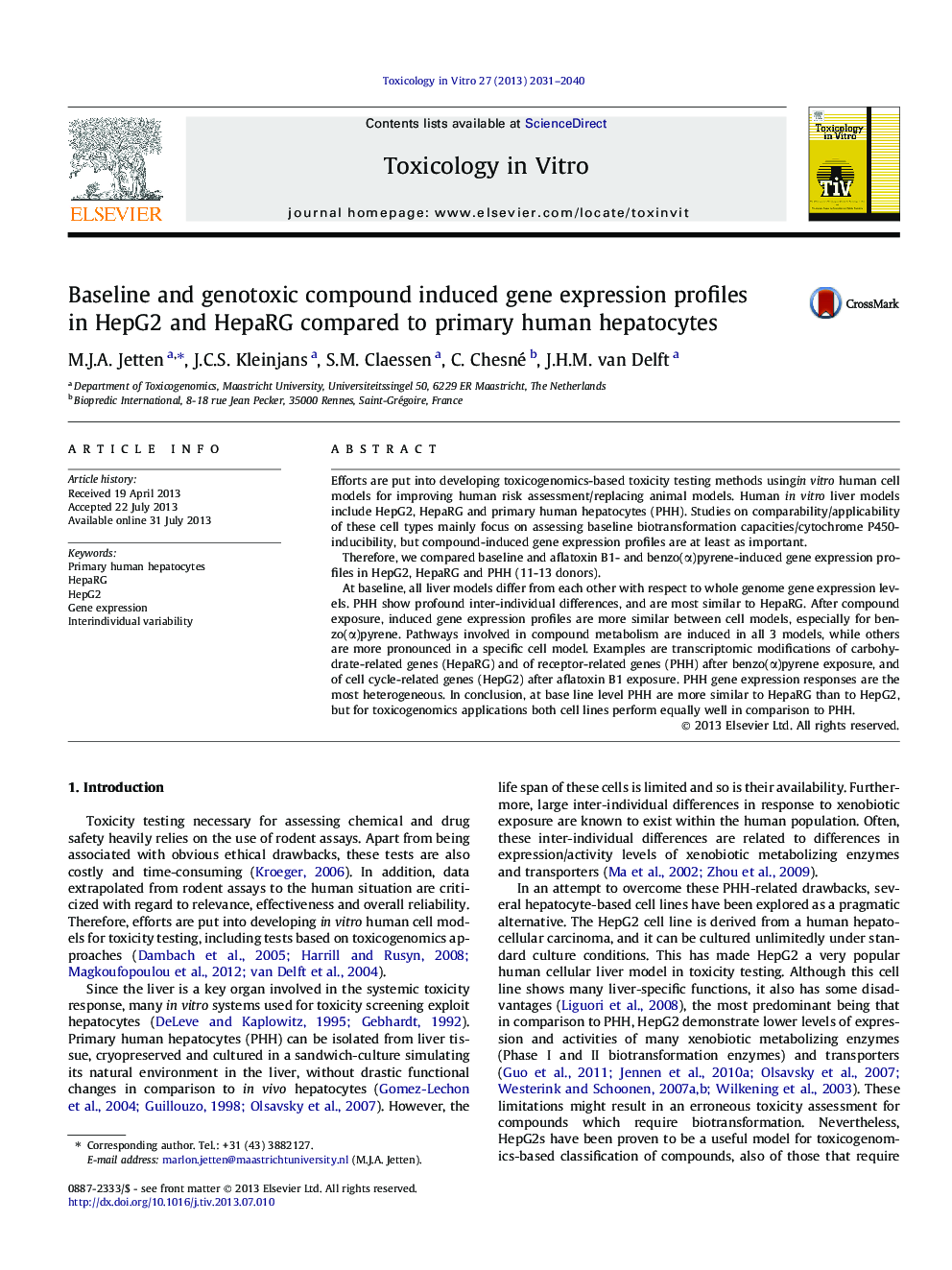| Article ID | Journal | Published Year | Pages | File Type |
|---|---|---|---|---|
| 5862782 | Toxicology in Vitro | 2013 | 10 Pages |
Abstract
At baseline, all liver models differ from each other with respect to whole genome gene expression levels. PHH show profound inter-individual differences, and are most similar to HepaRG. After compound exposure, induced gene expression profiles are more similar between cell models, especially for benzo(α)pyrene. Pathways involved in compound metabolism are induced in all 3 models, while others are more pronounced in a specific cell model. Examples are transcriptomic modifications of carbohydrate-related genes (HepaRG) and of receptor-related genes (PHH) after benzo(α)pyrene exposure, and of cell cycle-related genes (HepG2) after aflatoxin B1 exposure. PHH gene expression responses are the most heterogeneous. In conclusion, at base line level PHH are more similar to HepaRG than to HepG2, but for toxicogenomics applications both cell lines perform equally well in comparison to PHH.
Related Topics
Life Sciences
Environmental Science
Health, Toxicology and Mutagenesis
Authors
M.J.A. Jetten, J.C.S. Kleinjans, S.M. Claessen, C. Chesné, J.H.M. van Delft,
